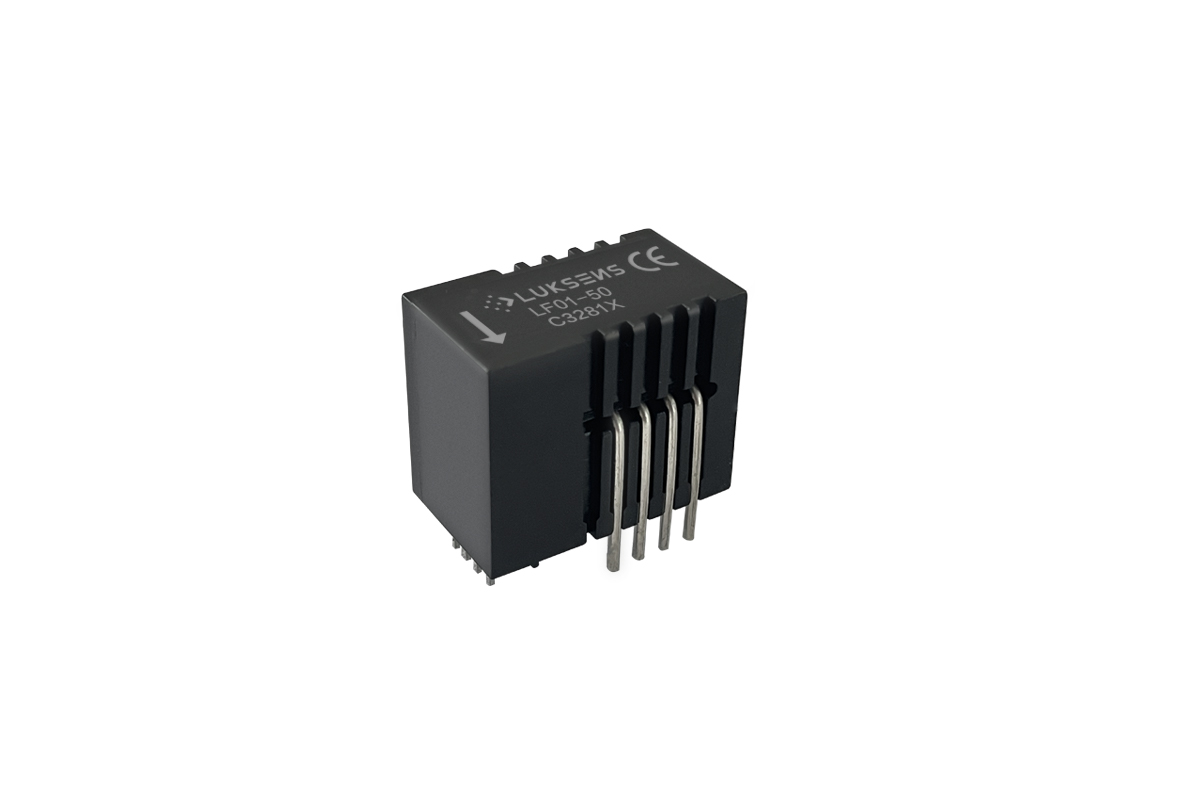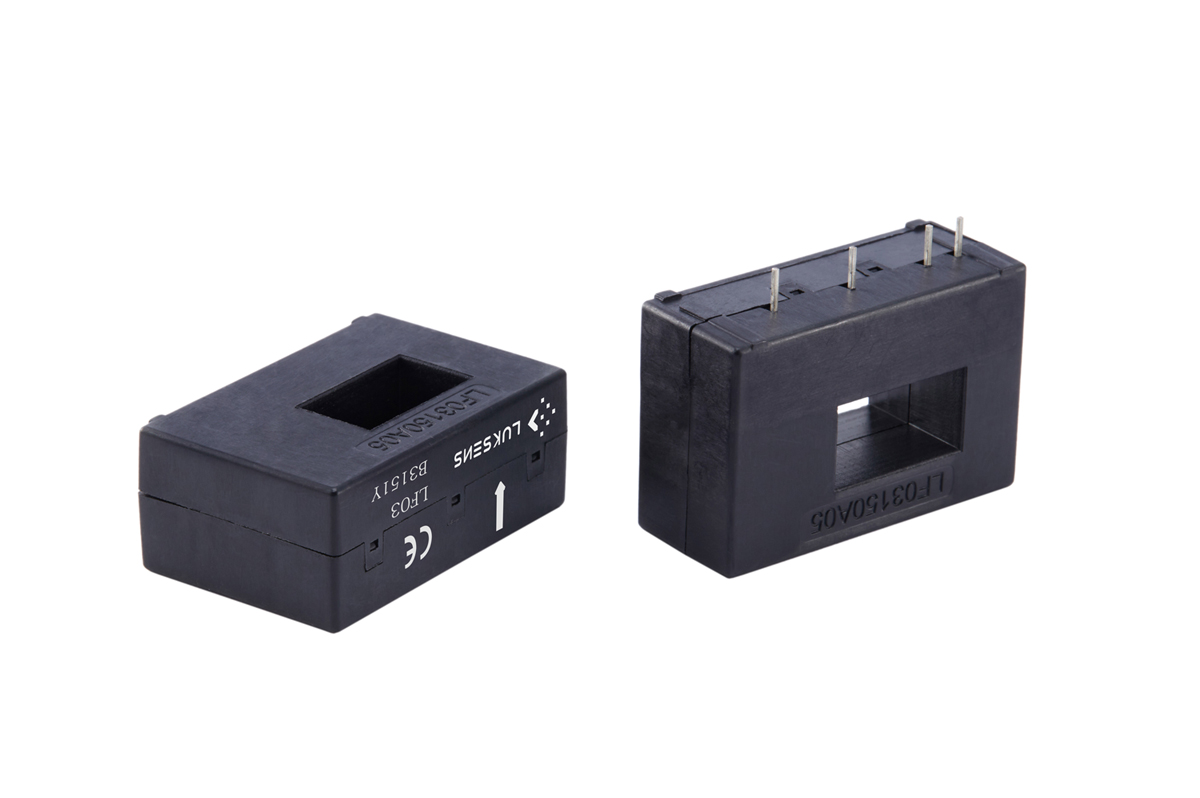What is fluxgate current sensor?
To understand fluxgate current sensor, so called as high precision fluxgate current sensor, we’ll study the principle of fluxgate first. The essence of the fluxgate principle is that the inductance of the easily saturated magnetic core changes with the magnitude of the excitation current under the action of the excitation current, and the change of the inductance leads to the change of the magnetic flux. The magnetic flux is opened or closed like a door, so it is visualized fluxgate Principle.
Meanwhile, the operating principle of a fluxgate current sensor is the same as the measurement principle of a current sensor based on the Hall effect: the magnetic field generated by the primary current to be measured is detected by a specific sensing element. The design of a fluxgate current sensor is similar to that of a close-loop Hall effect current sensor, except that this approach uses a saturable inductor in the air gap instead of a Hall effect sensor.
The fluxgate current sensor uses the principle that the external magnetic field affects the magnetization of the magnetic core to achieve magnetic field measurement. It is mainly composed of a magnetic core, an excitation coil and a detection coil in structure, and the magnetic core is the key to determine the detection capability. When the high-frequency magnetic field generated by the excitation coil magnetizes the core repeatedly, the detection coil can sense a distorted voltage signal. When the external magnetic field changes, the signal will also change accordingly. The measured voltage can be detected according to the change of the even-order component of the distortion signal magnetic field.
The fluxgate current sensor is a device that converts changes in the magnetic properties of sensitive components caused by external factors such as magnetic field, current, stress and strain, temperature, and light into electrical signals, and detects corresponding physical quantities in this way. The high precision fluxgate current sensors are widely used in modern industries and electronic products to measure physical parameters such as current, position, and direction by sensing magnetic field strength. In the prior art, there are many different types of sensors used to measure magnetic fields and other parameters.
Why fluxgate current sensor has higher accuracy comparing with Hall current sensor?
Due to the unique ultra-high magnetic sensitivity of the fluxgate, the current sensor based on the fluxgate principle also has unique characteristics:
High sensitivity, the measurement accuracy of fluxgate current sensor is much higher than the general Hall principle, and because the fluxgate probe is based on magnetic materials, it has a much more stable temperature characteristic than the Hall principle.
Why fluxgate current sensor has higher accuracy comparing with Hall current sensor?
- The high sensitivity of the high precision fluxgate current sensor principle.
- Close-loop magnetic balance technology, the output is strictly in accordance with the corresponding relationship of the turn ratio.
- The high precision fluxgate current sensor principle uses an integral magnetic core without any air gap, so there is no magnetic flux leakage and no position error.
- The double fluxgate probe design compensates and eliminates the influence of fluxgate probe oscillation harmonics, and the output is cleaner.
- The zero offset is smaller and can be adjusted slightly.
Want to know the application of fluxgate current sensor?
In industrial applications, the most popular types of magnetic sensors are current sensors, including shunt resistors, Hall effect integrated circuits, current-sensing transformers, open-loop and close-loop Hall devices, and fluxgate current sensors.
High precision fluxgate current sensor, of which measurement and measurement grade products are mainly used in instrumentation, aerospace, subway and high-speed rail transit, nuclear magnetic resonance equipment, and university research institutes; industrial control grade products are mainly used in new energy electric vehicles, BMS modules, charging stations, energy storage system, photovoltaic inverter, big data center, industrial air conditioner, frequency converter, DC power supply and other fields, the market scale is huge and the market prospect is broad.
What high precision fluxgate current sensors does Luksens manufacture?
Luksens provides one-stop customized service, with a wide range of sensor product selection. Our high precision fluxgate current sensor represented by LF01 series and LF03 series incorporates dynamic fluxgate detection technology, offering highly accurate current measurements.
LF01 series fluxgate current sensor
The LF01 series high precision fluxgate current sensor incorporates dynamic fluxgate detection technology. Its design is simple and practical, with the ability to inhibit high temperature drift. Fluxgate technology makes use of the phenomenon of magnetic core saturation to modulate the measured magnetic field, transforming it into an electric field and thus, completing the magnetic field measurement process.
*The advantages at a glance:
- Accurately measure AC, DC and pulse currents
- Excellent temperature stability and linearity
- Fast reaction; minimal noise output
- High immunity to external interference
- Almost zero offset voltage
- High ESD sensitivity (Human Body Model) 4kV
*Suitable for the following applications:
- Inverters for photovoltaic systems
- Servo controller
- Uninterruptible Power Supply (UPS)
- Battery charging systems
- welding applications
LF03 series fluxgate current sensor
The LF03 series high precision fluxgate current sensor incorporates dynamic fluxgate detection technology. Its design is simple and practical, with the ability to inhibit high temperature drift. Fluxgate technology makes use of the phenomenon of magnetic core saturation to modulate the measured magnetic field, transforming it into an electric field and thus, completing the magnetic field measurement process.
*The advantages at a glance:
- Excellent linearity of < 0.1%
- Short measurement times, low noise
- Easy installation; compact, small format
- Sensor performance is not affected by changes in ambient temperature
*Suitable for the following applications:
- Inverters for photovoltaic systems
- Uninterruptible Power Supply (UPS)
- Battery charging systems
- AC variable speed drives and servo drives
Since 2001, Luksens has been committed to being a reliable partner for users in the areas of high-quality high precision fluxgate current sensor solutions. Through our professional team of research & development, manufacture, sales, and service, we offer innovative fluxgate current sensor solutions in Energy Management, Motion & Drives, Domestic Appliance, Welding, EV Chargers, Pumps, Air Compressors, Air Conditioners, Heat Pumps, Mechanical and Plant Engineering etc.













